Martyn Roach was Best British All Rounder, three times RTTC 50 mile Champion; twice RTTC 100 mile champion, three times RTTC 12 hour Champion and a member of the winning team in the RTTC 100 Kilometre Team Time Trial Championship four times.
Along the way he broke the British 100 mile and 12 hour records with 3:51:41 and 277.17 miles respectively.
Just a ‘time tester’ then?
How about the West London Divisional Road Race Championships, the Archer Grand Prix and the Chequers Grand Prix with hard men Tony Gornall and Bob Downs in second and third spots in that one?
And in stage racing, the Coventry Two Day, the Crawley Two Day, the Dave Cosson Memorial Two day – oh yes, and top 10 in the Milk Race?
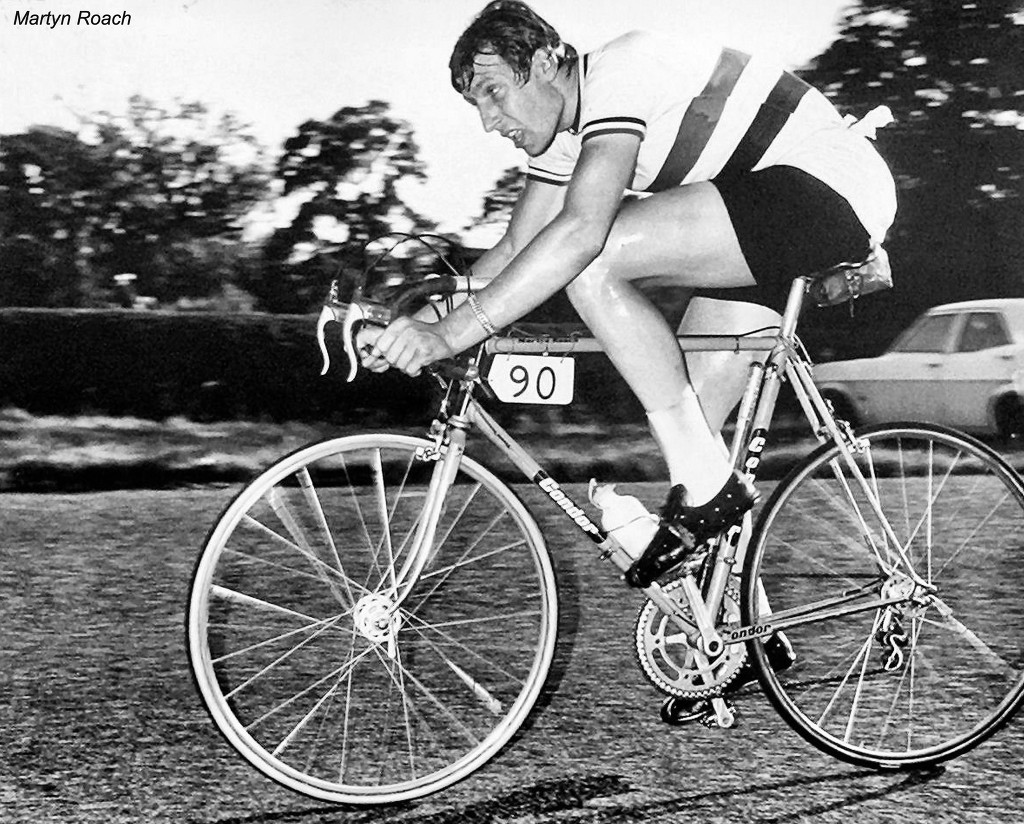
Roach was one of the strongest riders of his generation but despite offers to move to foreign shores he remained a ‘true blue’ GB amateur, working full time all through a beautiful career which lasted from the 60’s to the 80’s.
It was Mr. Terry Lewis Batsford who connected us with the now 73 years-old Martyn and here’s what the man who could do it all had to say to VeloVeritas recently.
Your first race, Martyn?
“That would be an evening club ‘10’ in 1963 on a very rustic course which is still used for mid-week time trials – I recorded 27:20.”
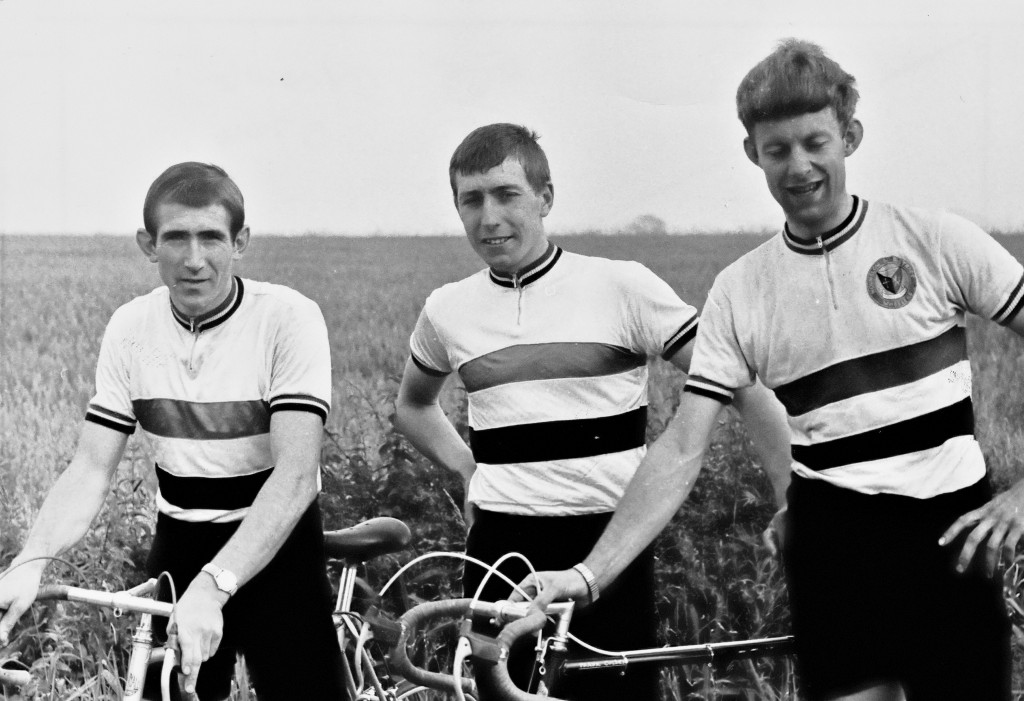
You won eight individual national championships, is there one which gives you most satisfaction when you look back?
“The first one because you’re never sure you’re good enough to win one until you actually do.
“In my case that was the National ‘50’ on the Bath Road on July 7th 1968 – that road still evokes enormous emotion within me.
“In 1967 I was just starting to get noticed and was delighted to be selected for the now forgotten RTTC ‘International 50 Mile Time Trial’ which attracted a lot of top continental road riders on their way back from the Isle of Man International.
“I finished sixth that year and in ’68 I finished second; I was leading at five miles to go but the guy who beat me made full use of his 13 sprocket in the tail wind assisted finish whilst I only had a 14 on, I lost by eight seconds.
“The national ‘50’ was on almost exactly the same course, two weeks later; my defeat in the International had spurred my motivation and I won the National by a street with the ‘International’ winner four minutes back.
“It was one of the few races where I felt that I simply couldn’t have given any more or gone any faster.”
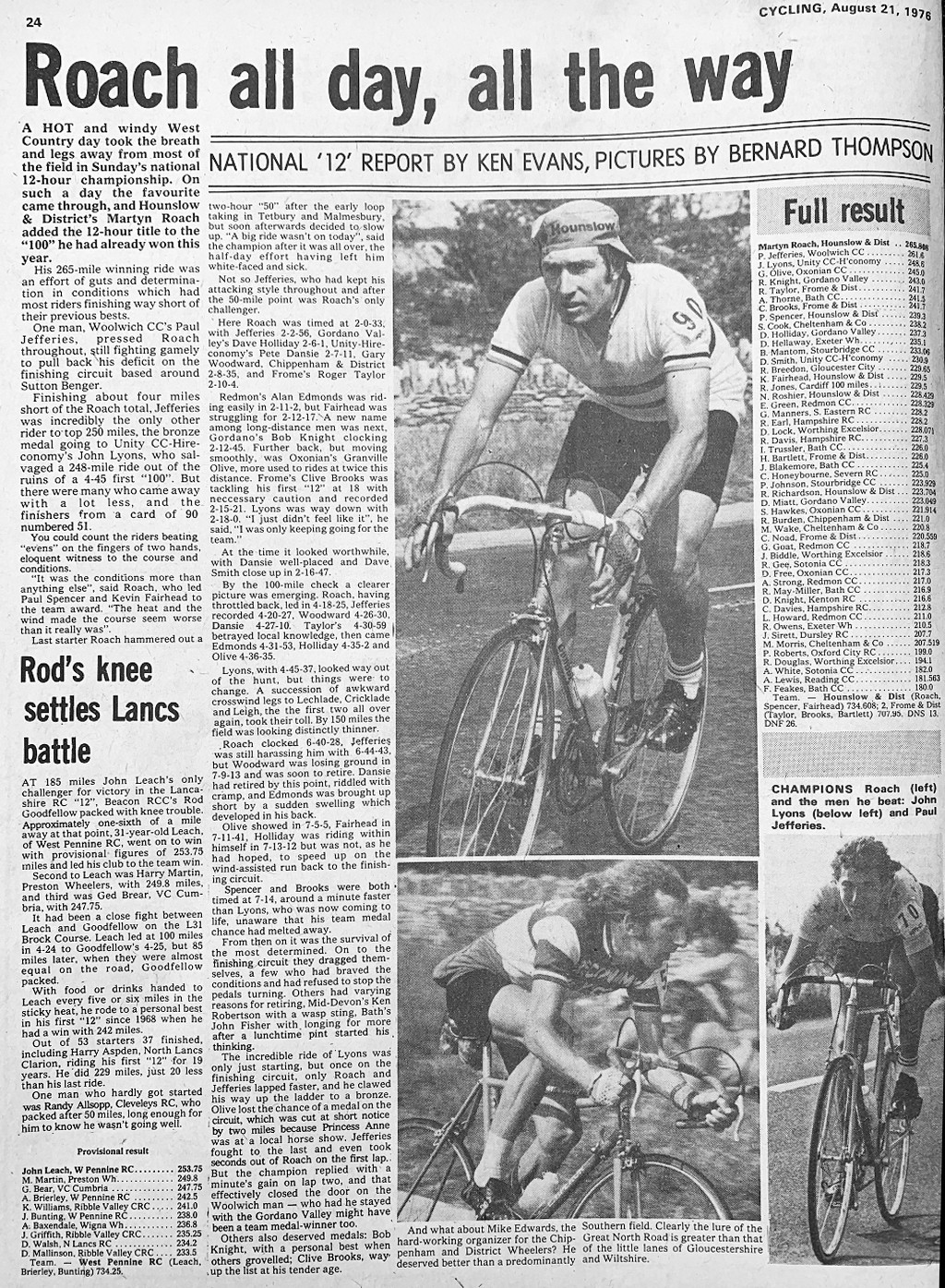
The ‘25’ escaped you.
“Despite the fact that I won the ‘50’ three times I was always more associated with the ‘100’ and the 12 hour.
“Back then there were a lot of specialist 25 miles who might only ride one or two ‘50’s’ each year.
“Up against them I was an outsider and only a contender if it was a particularly hard day; although I did get on the podium on one occasion with a bronze medal.
“But you wouldn’t expect a marathon runner to be competitive in the 100 metres, would you?”
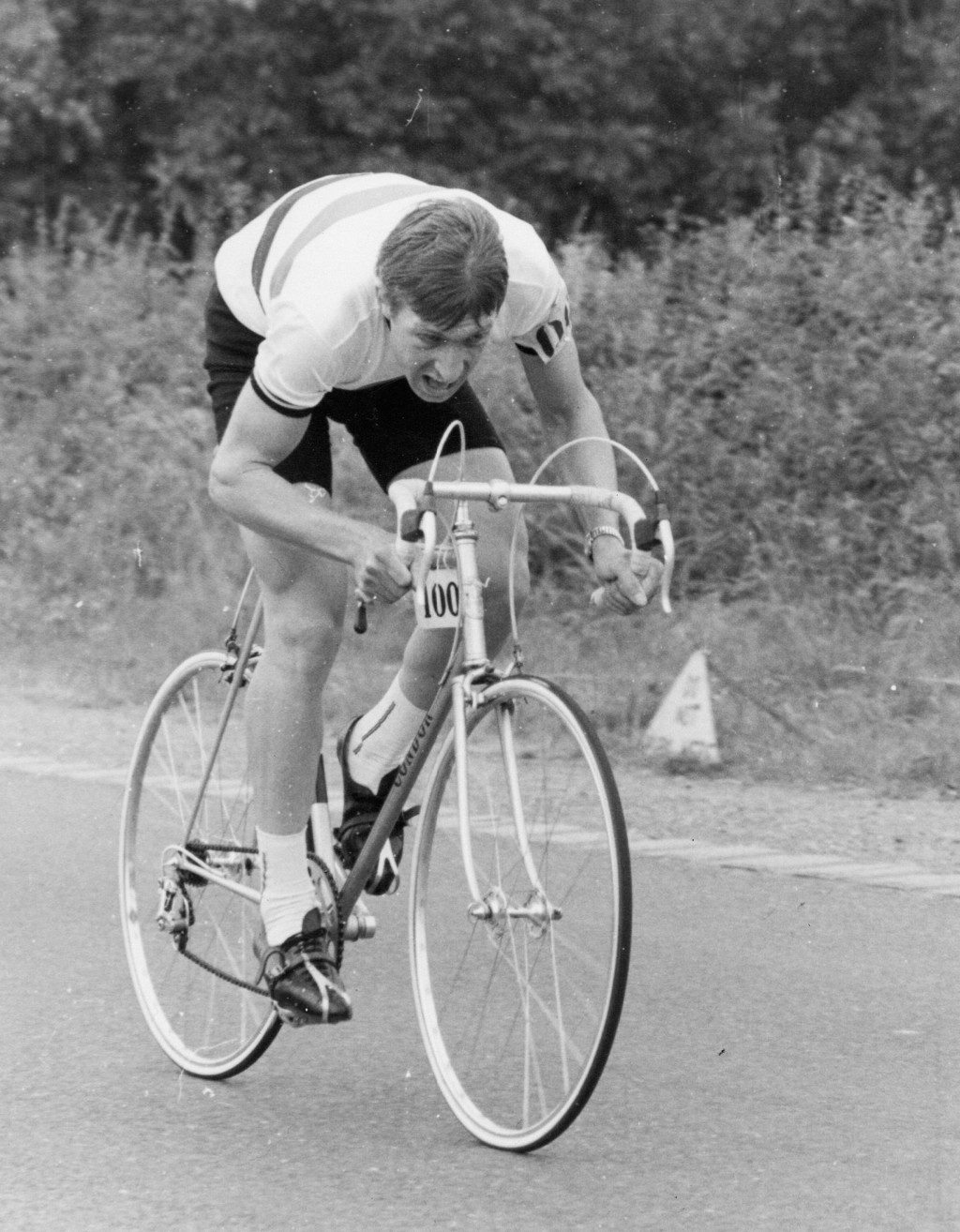
You won the BBAR in ’68 but multiple BBAR, Ian Cammish said that if you’d chased the fast courses you’d have won it several more times?
“One of the joys of sport is sitting around with like-minded people talking about what ‘coulda been!’
“I preferred to ride courses that were sporting, challenging rather than chasing after the fashionable courses.
“The Bath Road ‘100’ was the course for a while, then it was Essex then Yorkshire and the A1 – and the ‘K’ courses had their turn too.
“But often the sparkling ride that attracted riders was the product of the rider rather than the course.
“But no, I’m not keen on almost entirely dual carriageway courses; there’s very little dual carriageway on the Bath Road whilst the Boroughbridge ‘50’ is almost entirely dual carriageway.
“I felt happier if the course tested me, I got more satisfaction from that.
“In 1968, two weeks after I won the ‘50’ champs I broke the ‘100’ record with 3:51:41, taking almost three minutes off “Frank Colden’s ‘unbeatable’ time of 3:54:23 but it was the course contributed to that time, it wasn’t the same as taking it on what I’d call a ‘fair’ course.”
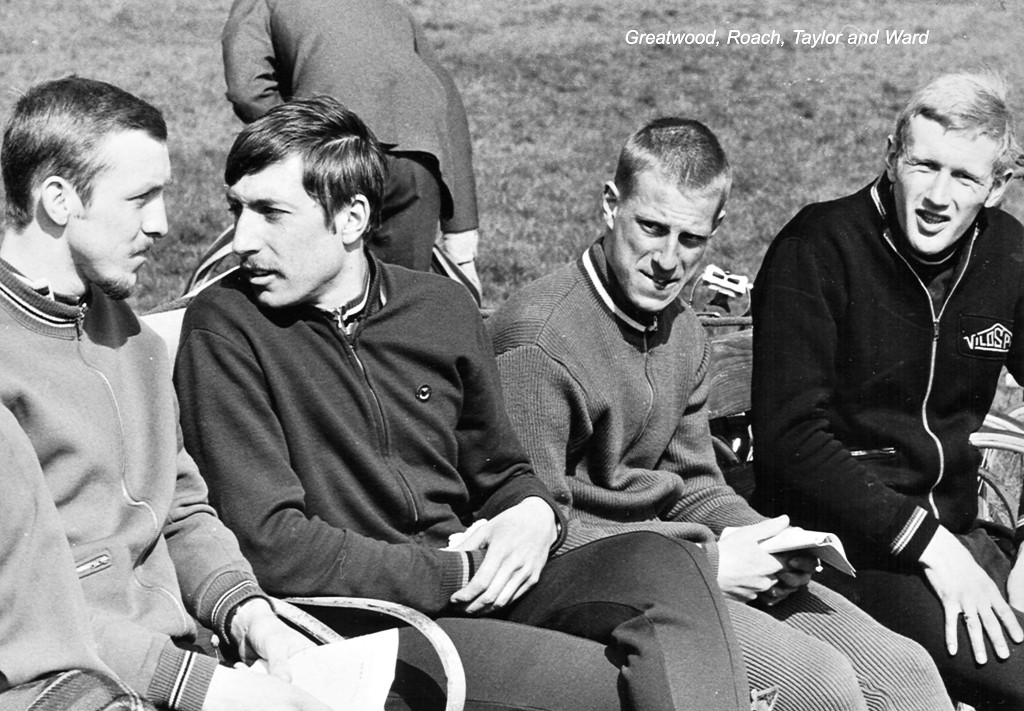
You also have a great record in team time trials.
“I was in the winning team four times in the RTTC champs; the full former Worlds and Olympic distance of 100 kilometres – not today’s shortened version. I rode the World Championship TTT in 1969 and 1970 too.
“It’s undoubtedly the hardest event there is if raced by four guys who can all put themselves through it.
“You can get a quality roadman who could ride in a break all day but put him a 100 K TTT and it’s a different story; no respite, it’s a bigger mental strain and some top roadmen just couldn’t hack it.
“I rode it a couple of times when we were outside the medals and was second twice; I only once rode it where none of the four of us missed a turn.
“We did a 2:07 which was a national record and won by six minutes; with Jeff Marshal, Bob Porter and Derek Cottington.
“Derek was a 25 miler but I knew he could cope with the distance.
“At the end we were all drained but it was also the smoothest I’ve ever ridden, without the stress of having to sit up and wait for someone.
“It had been intimated that the winning team would gain Olympic selection but that wasn’t how it turned out.
“It’s probably my favourite event and was the last championship I ever won, in 1978 on a horrendously hard day.
“We dropped a man after just 20 miles then our third man had to sit on, so it was just Derek and I – then he couldn’t come through so I did the last 20 miles on the front with the other two hanging on.
“At the finish I thought; ‘well, that’s that!’
“But we’d won – you forget it’s just as tough for everyone else.”
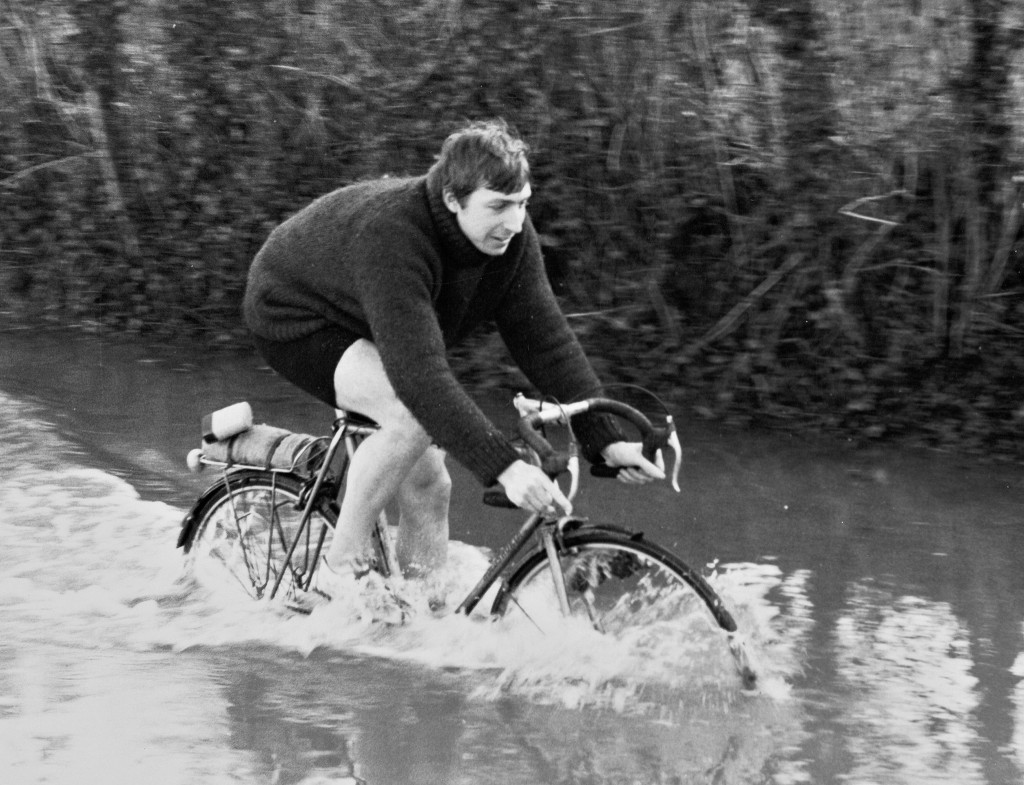
Did you work full time during your time at the top?
“Yes, full time with the Inland Revenue.
“If I needed time off for extra training I took it as holidays.
“My whole life was cycling and work, I cycled to work and back and never felt disadvantaged.
“People came and went, bursting onto the scene for a year or two then disappearing – they couldn’t sustain the level of training required and deal with the realities of having a family and mortgage.”
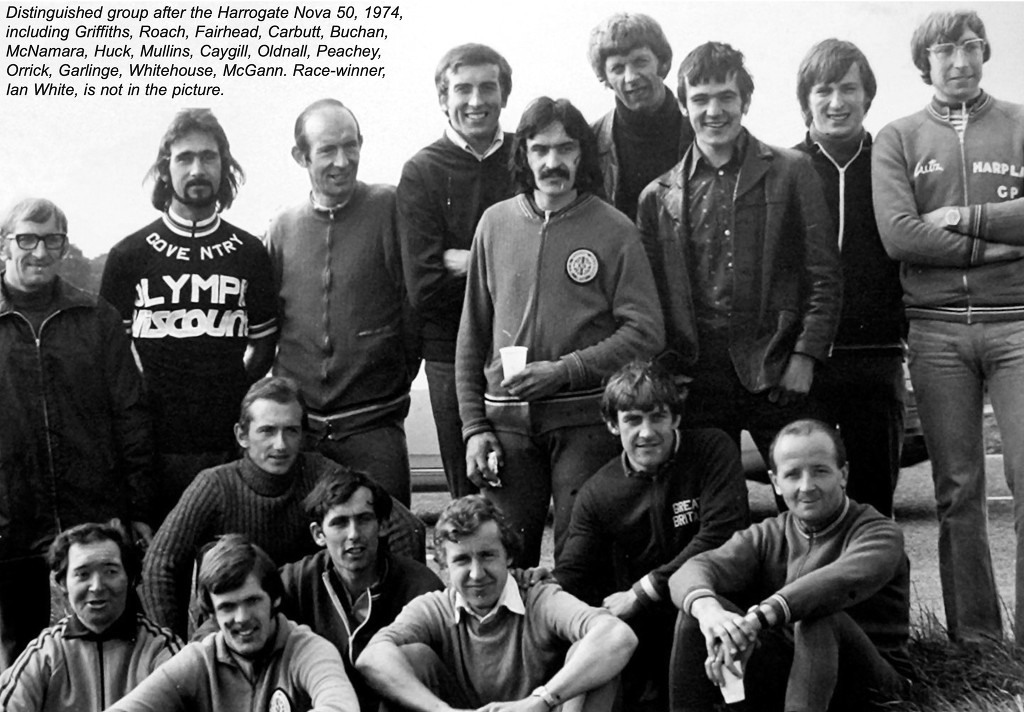
You were a very strong road rider too.
“I do feel road racing was harder back then, there weren’t just a few potential winners, there were many.
“And whilst there were strong teams like the Kirkby and Liverpool Mercury, team tactics played less of a part.
“Because the Hounslow was predominantly a time trial club my friends and club mates often couldn’t get into the top flight road races so I was on my own with no team tactics to worry me.
“I look at the continental stage races now, where the break goes, is controlled then brought back and think how predictable it all is.”
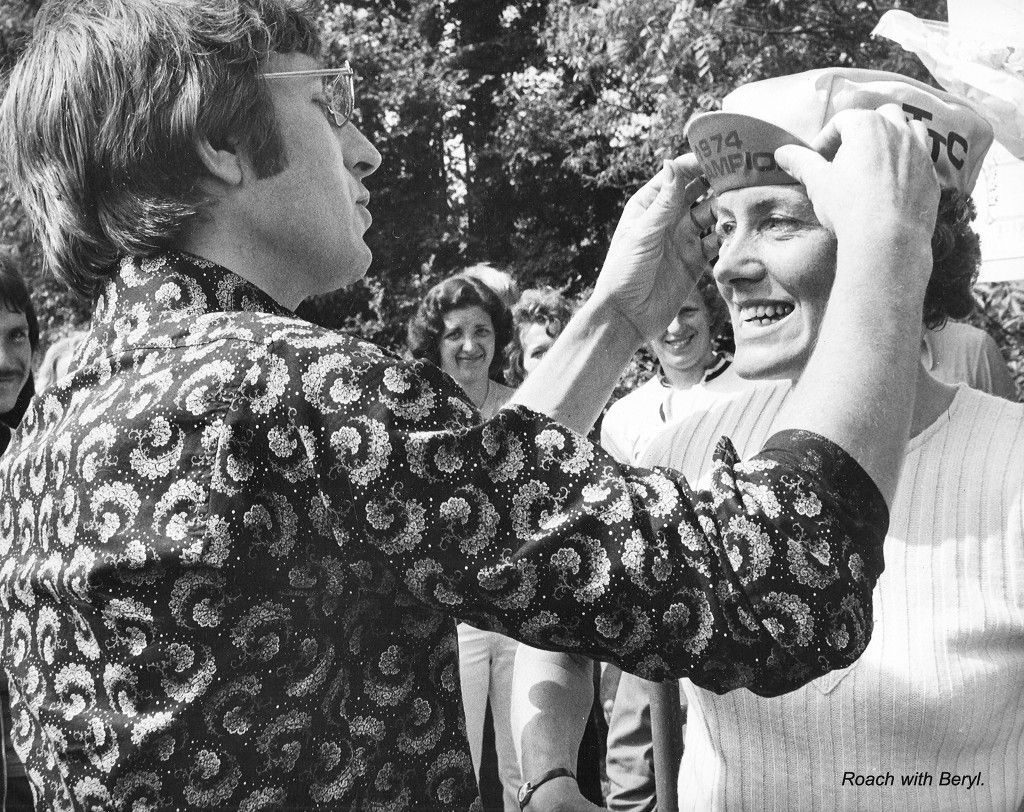
And you were no mean stage race rider with a Milk Race top 10 on GC on your palmarès.
“Yes, I was eighth overall in 1972 but in ’69 when I finished 14th but I was headed for a much higher place when I was brought down whilst sitting sixth overall.
“The break I was in had gained a lot of time on the favourites – we put three minutes into Fedor Den Hertog.
“Sid Barras and Brian Jolly were duelling for the win at the finish Stoke so there was no point in sprinting but the guy in front of me rolled his front tub, I was glued to his wheel and there was nowhere to go but down.
“It was a hospital job and I had to visit the race nurse every morning before the stage.
“After that I slipped a couple of places each day.
“I know in my heart that had it not been for the crash I would have been right up there; a lot of guys sparkle in the first week but after the first week they start to get tired – on the other hand I was on the ascendant.
“The Dutch team manager approached me and asked if I’d consider coming to The Netherlands to race, he reckoned I was the strongest man in the race.”
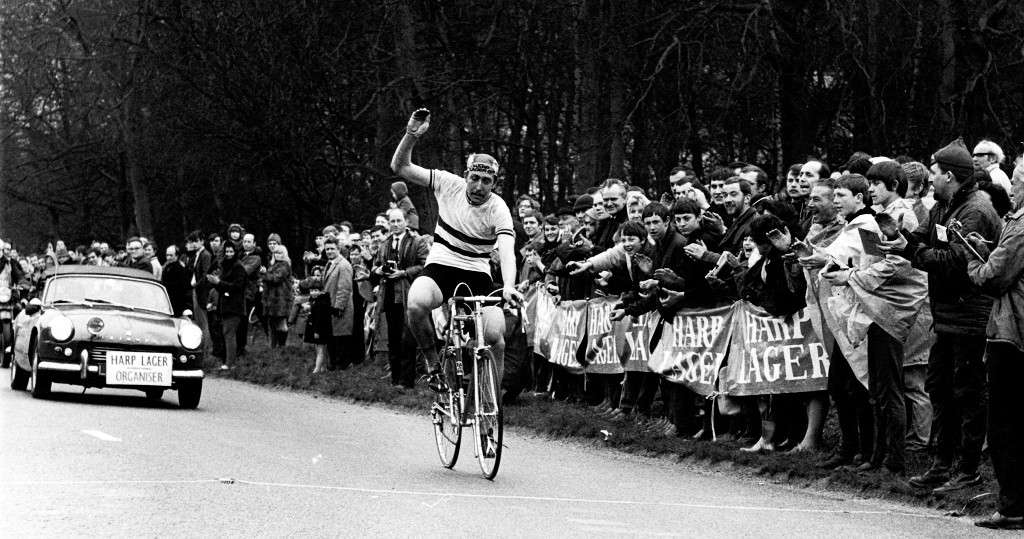
Time trials, single day road races, stage races, how did you fit it all in?
“When the RTTC and BCF handbooks came out early in the new year a group of us would meet up at the legendary photographer Bernard Thomson and his wife Ethel’s house to plan the season.
“After a few years we knew pretty much how our seasons would pan out; mine was different to the others because I would be factoring the big road races.
“In the main I stuck to that plan throughout the year but I do remember in ’76, for whatever reason, I decided to ride the local ‘12’ rather than the national.
“I was going well but climbed off after three hours, I just lost interest; it was bizarre.
“I think that in my subconscious I knew should be riding the National ‘12’ – which I then did, and won it.”
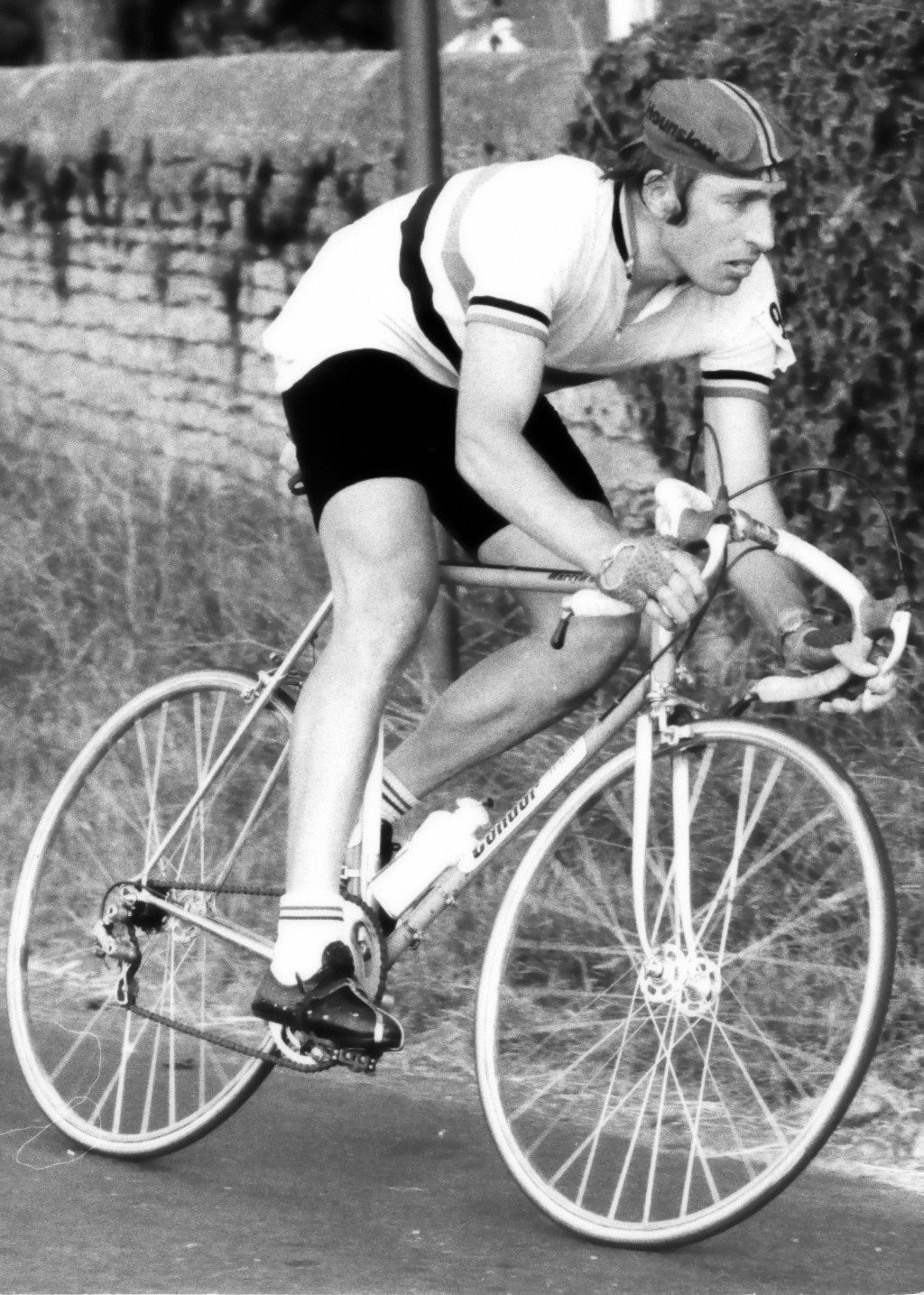
You were always a ‘Condor Man,’ but no drillings or fancy kit adorning them.
“I was a Condor devotee from 1965, always with standard equipment; albeit my first bike was a Fred Dean, he had a shop in Wandsworth and ran a pro team which included Dave Bedwell in the line-up.
“But Fred ‘done a runner’ to Belgium to escape the tax man.
“I spent a bit of time visiting shops after school to see whose bike I would go with.
“I went with Condor because the owner, the late Monty Young treated me seriously and with respect from the first time I met him, I was just some young kid off the street but he made me feel important.
“I still go to Condor and I still ride my steel Condor – Campag Centaur groupset equipped and with mudguards on.
“My best bike is titanium but I ride that sparingly.”
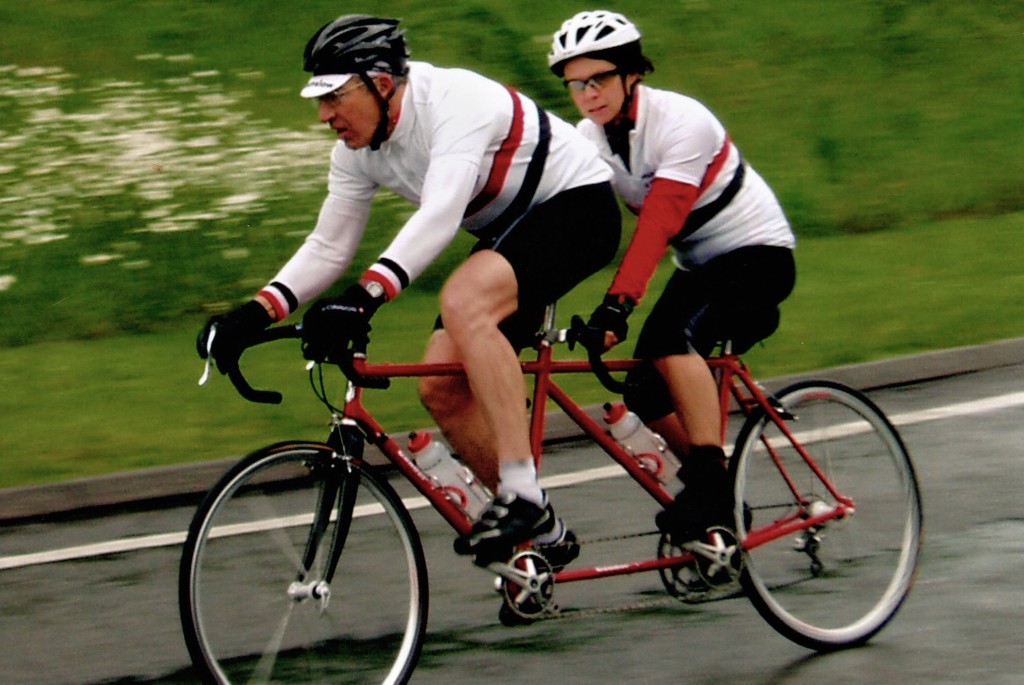
Your last race?
“On a solo machine that would be a club ’25’ in 2006.
“I’d gradually worn out all my Condors, all that was left was my fixed bike; I had a brainstorm in the autumn of 2005 and decided to get some modern equipment.
“My friend, Jim Bailey often used to tell me about the Circuit of the Dales 50 mile time trial up around Ingleton, Garsdale, Sedbergh, Hawes and Ribblehead.
“When Jim died, I decided that as a mark of respect I’d ride it, I’d considered back in my serious racing days but it was just so far away.
“But I rode in 2006 then followed it with that club ‘25’ – and that was it, on a solo.
“However in 2007 I went on holiday to Eric Moody’s home in Brittany with a lady friend, we took Bernard and Ethel Thomson’s old tandem and rode out to watch two Tour de France stages.
“She was so enthused by the experience she suggested we ride a ‘100’ on it back home.
“I took it to Condor’s, had it renovated and we duly did a ‘100’ with a 4:28 ride.
“But!…
“If the right suggestion came my way there might yet be another race to come, one day…”
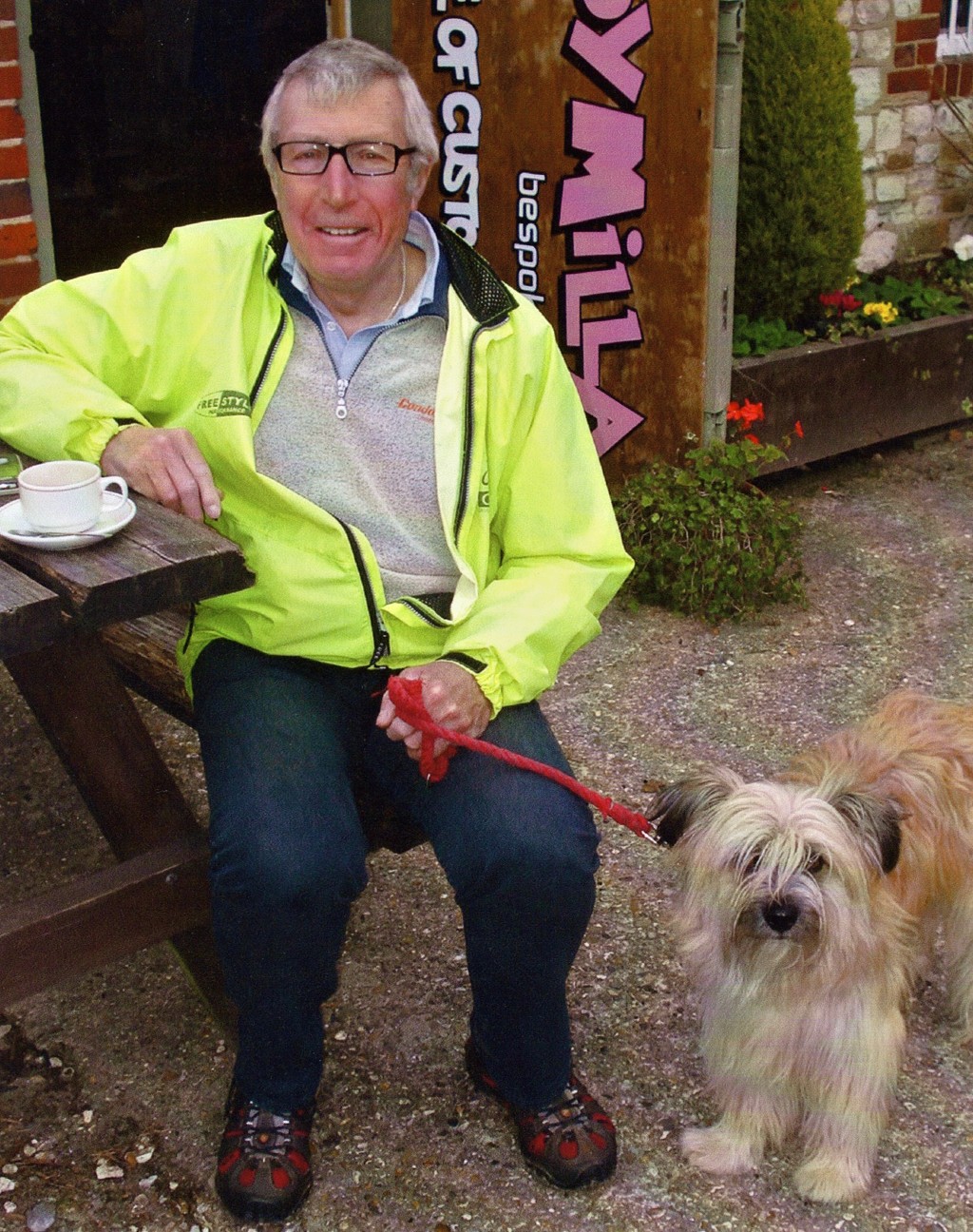
A privilege to speak to one of British Cycling’s legends, with thanks to Terry for the introduction and to Martyn for his time, reminiscences and the use of his personal photographs.



